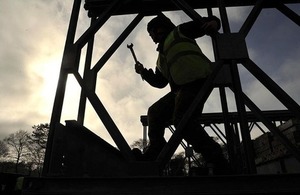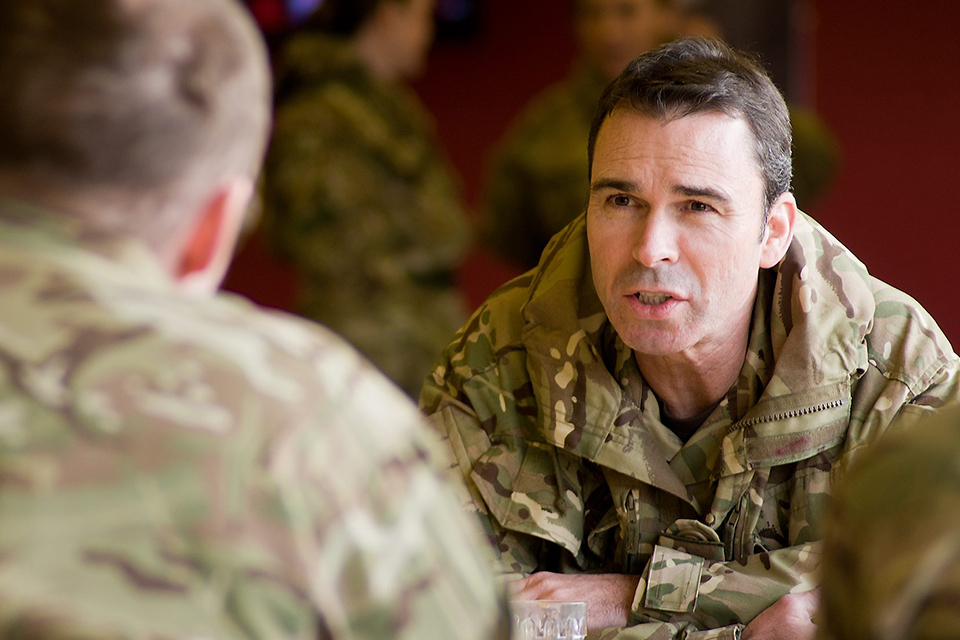Employers briefed on the benefits of army reservists
Some of the UK's top engineering companies gathered at an event in London to learn about the benefits of employing army reservists.

A sapper dismantling a bridge (stock image) [Picture: Mark Owens, Crown copyright]
Deputy Commander Land Forces, Major General Ranald Munro, told businessmen from more than 20 top companies about the work of the Royal Engineers. General Munro, the most senior reservist in the British Army, explained the vital work done for the armed forces by the Engineer Group.
The group consists of specialist regular and reserve military engineers who provide infrastructure engineering expertise to the military, often in austere circumstances. Whether the need is to build a road, maintain a railway, design an airfield or provide the infrastructure support for a port or large camp, these engineers have the necessary skills and professional experience to do it.
The businessmen in the audience heard about the various roles performed by 65 Works Group Royal Engineers, a 300-strong nationally recruited reserve unit. This Works Group has infrastructure teams whose capabilities are unique to the Army Reserve, with extensive professional knowledge of power, fuel, water and airfield requirements as well as rail and port infrastructure expertise.

Major General Ranald Munro [Picture: Lieutenant Colonel John Skliros, Crown copyright]
Lieutenant Colonel Darin Gray, the commanding officer of 65 Works Group, said:
Reservists play an important role in our Engineer Group so it is important that we maintain the support of employers and ensure they have a clear understanding of the benefits, obligations and rights of a reservist.
Mark Sweeny, the human resources director at Essar Oil, gave a presentation from an employer’s perspective, explaining the advantages of employing reservists and ex-regulars. He said:
The benefits are absolutely tangible to an employer. Reservists are highly valued and bring something that you cannot actually buy as a training package from a conventional training provider.
He continued:
You cannot buy the ethos, self-confidence, resourcefulness or attitude that service in the forces, regular or volunteer, provides.
Building strong relationships between the armed forces and the organisations that employ reservists is essential if all concerned are going to get the most out of the 3-way relationship.
Lieutenant Colonel Gray said:
We place the highest value on the contribution made by reservists and the success of the Army Reserve depends on the continued support of employers such as Essar Oil and Carillion.
If you are interested in a career in defence, please see the individual armed forces websites: